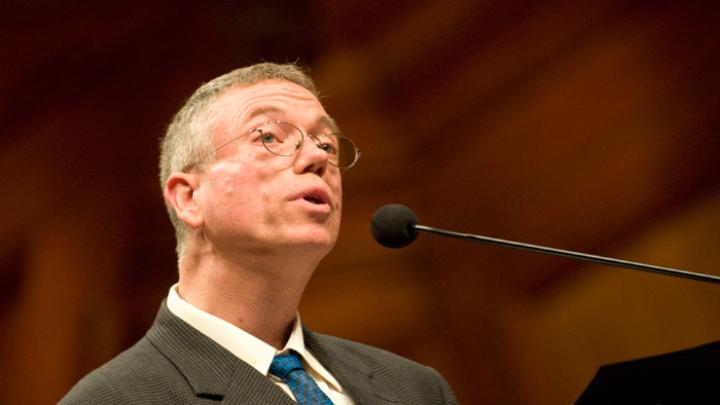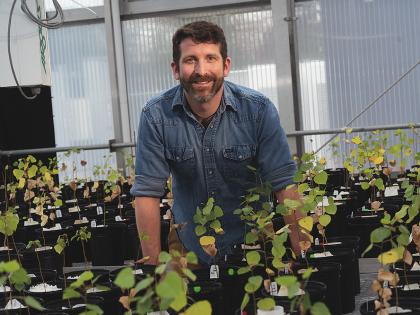"Panic in the Year Zero,"
by D.A. Powell
Bless
the tourists in their “Alcatraz Rocks!” parkas
on
the upper deck of a double-decker
in any given February bluster.
They
could have sworn it would be warm here,
just because the cryometer says it isn’t cold.
Who the hell
would look at a cryometer?
People from arctic places, I suppose.
People
who must have flown in over the map’s flat face;
who must have seen the latest developments;
the
delta’s brackish mouth; windmills
waving
white banderoles against the crisping brown hills.
Spring
looks a lot like summer looks a lot
like
drought. What would anyone expect
if they
knew the way planarity invites the opportunist.
Aren’t
the dispatches the same, reaching them
in
Chehalis, Waterloo and Asbury Park. Even
if folks
don’t watch what passes now for news,
I
assume they go to cocktail parties.
Or they Twitter.
They
don’t all have snug jammies and Ovaltine,
though they seem to get snugger by the minute.
What
kind of help could they get if they could get help?
Help them make this dull show
seem like art.
Help
the supporting cast appear
in the
end, summoned from the cities of the plain,
and appear to end and end again
as
in a wide shot of the Battle of the Marne.
Be
tolerant of those you cannot seem to understand.
And
other such advice.
It’s the
quiet part of the morning service,
while
I’m writing this down:
Thank
God for the quiet part.
And thank God for the one who held me to my wickedness;
who asked me to revel in it,
even though it cost us both a little dignity.
It’s easy for me to look back at what’s destroyed.
I knew it would be destroyed, like a wicked town.
I never thought “that town is where the heart is.”
I simply thought “that town is where the town is.”
Usually someplace inhospitable, and filled with
handsome men. The kind who kill you
with their handsomeness, or their acute cordage.
Hell is the most miraculous invention of love,
no matter how the love turns out.
Hell is the place from whence the music of longing—
which accounts for most of what we call music—
gets written.
Yet, I’m tired of this idea of hell, no matter how functional.
Sure, I’ve had my petty doubts.
Like the extra pills I’ve put in my Eva Braun box,
waiting for the bomb to hit Bakersfield,
or some other place in the near distance
(this plan only works if there’s some kind of distance)
the sign that it’s time to pull up stakes,
head for those durable hills with my pemmican,
my Port-o-pot, my jerry cans,
and yes, I too would have Ovaltine.
Though I guess it would be Ovaltine made with water
instead of milk.
Such would be the dark days
if we think the dark days really must come.
But I have lived through perilous times,
and I do not love them.
I cannot pretend I’m smart about such things.
I mean: look at the sloppy slew I’ve been.
And you were there. And you.
You’ve seen me rumple down the sidewalk like a moocher.
Lord knows, you’ve seen me hit that sidewalk on my keister.
“Scandalous,” the tourists said,
and flashed.
And when the worst of the drama came,
they clucked their tongues and threw their change.
Something inside each one of us is cocked
like the ear of a hound,
and half the time we hunt, and half the time we rescue,
because we’re never really sure
if the humans will beat us or feed us.
If we are our better selves, it’s just a wonder.
And if we’re not.
Even in our legends, angels come.
They try their best. But we’re such shits.
And it’s not because we want to screw them.
We screw everything. We’re mankind. It’s what we do.
I’ve probably sullied a few white wings myself.
That’s not the problem.
So much has passed between us, we’re practically cousins.
The problem is, we’re so bent on an ending,
we’ll sunder the entire valley,
with conviction. With an invented coda of immunity.
Nobody in this picture is granted immunity.
If it were available, I’d have gotten it for myself.
Enough with the apocalypse, already.
Think of all the history you’ve read. It started somewhere.
It started at absolute zero, is what you thought.
Just because you couldn’t know what came before.
But imagine: something did.
Copyright © 2010 D.A. Powell








